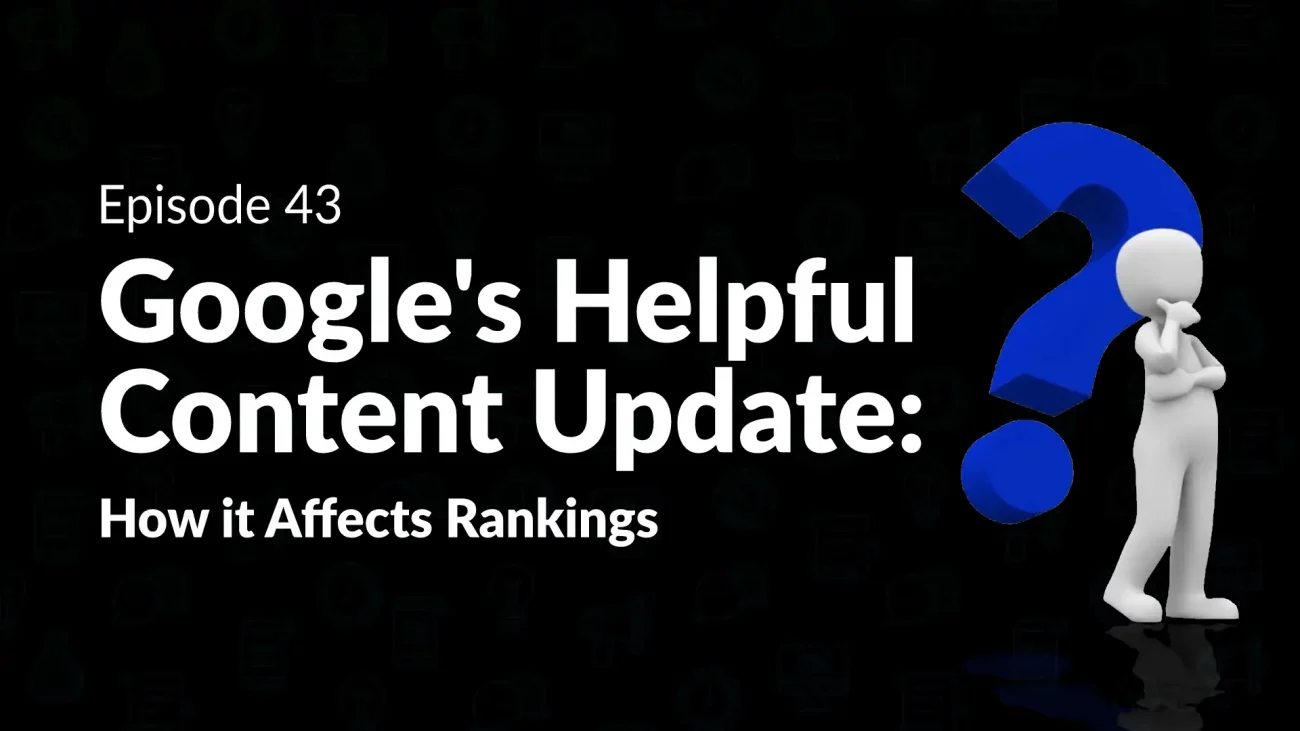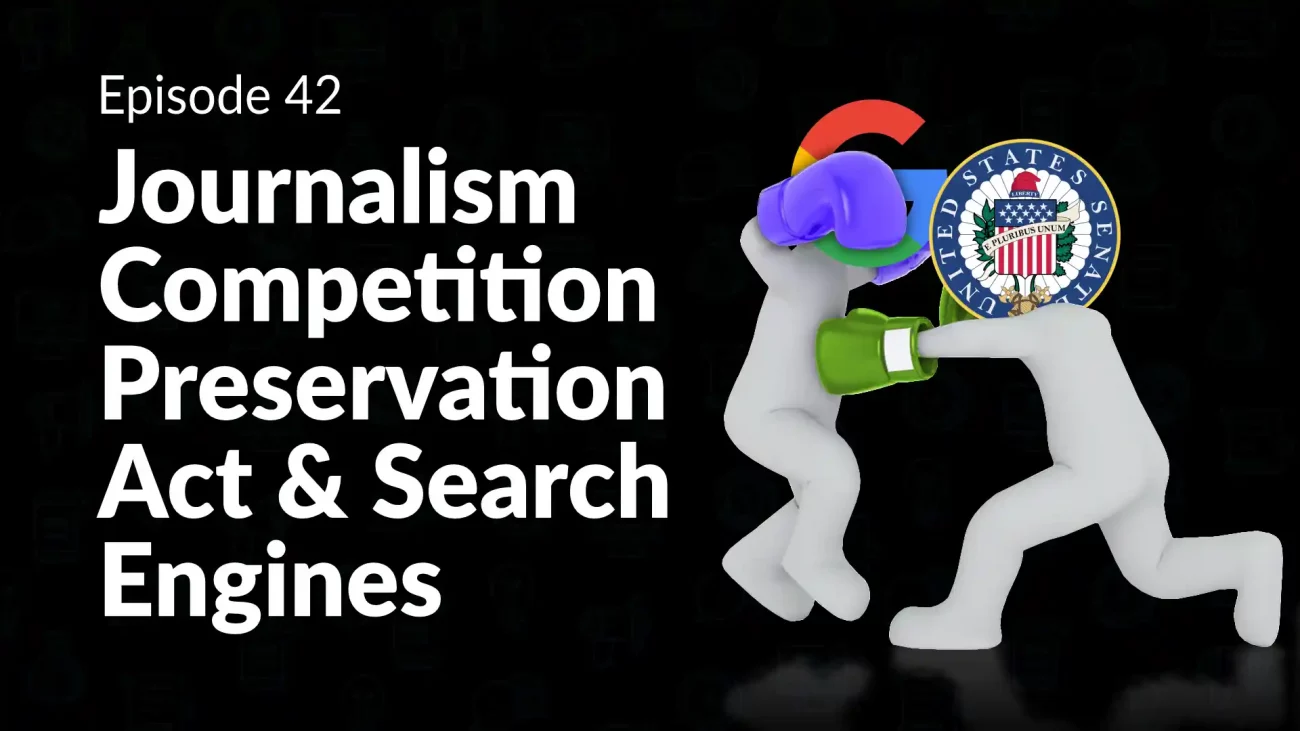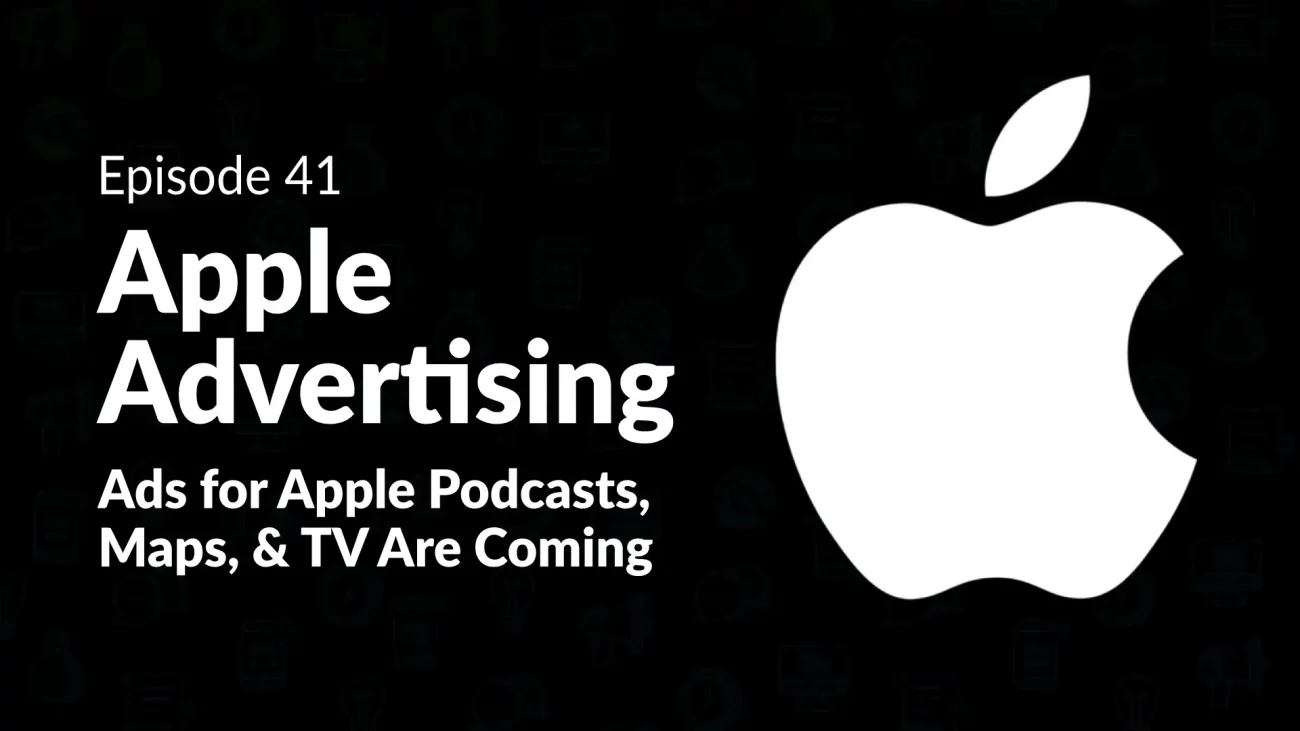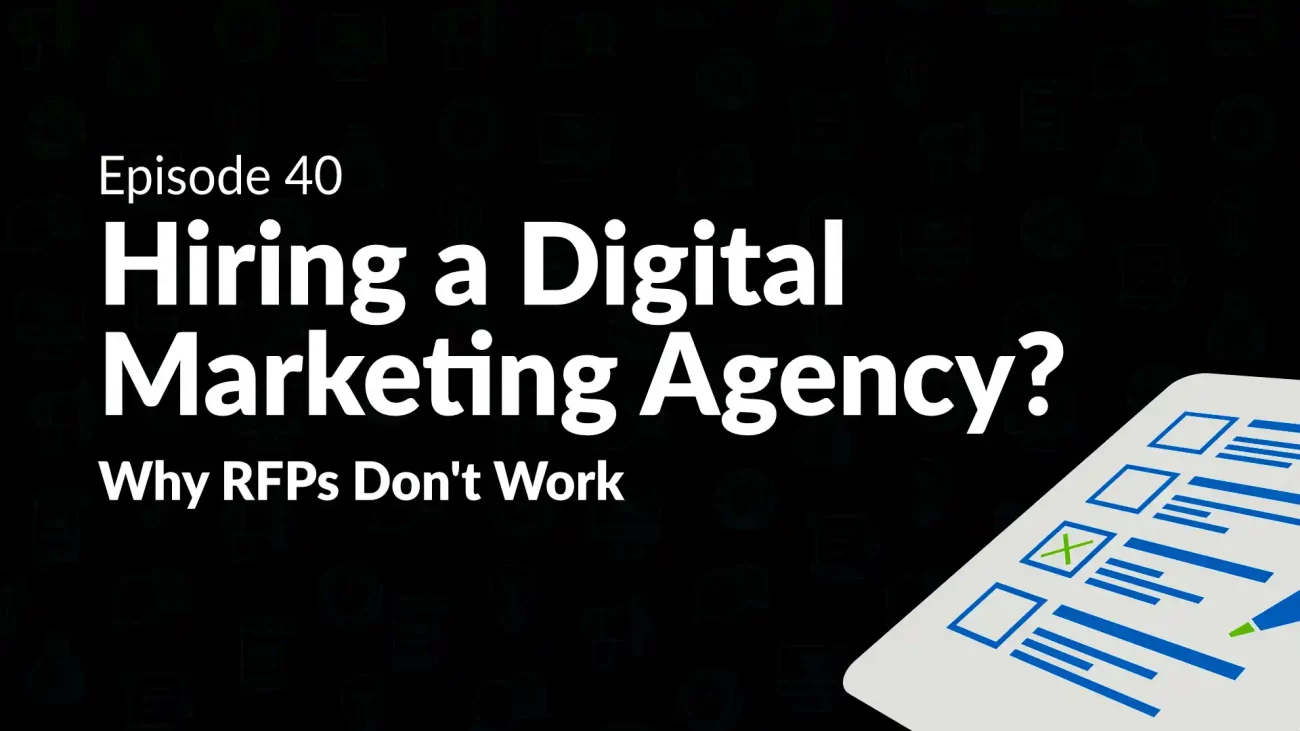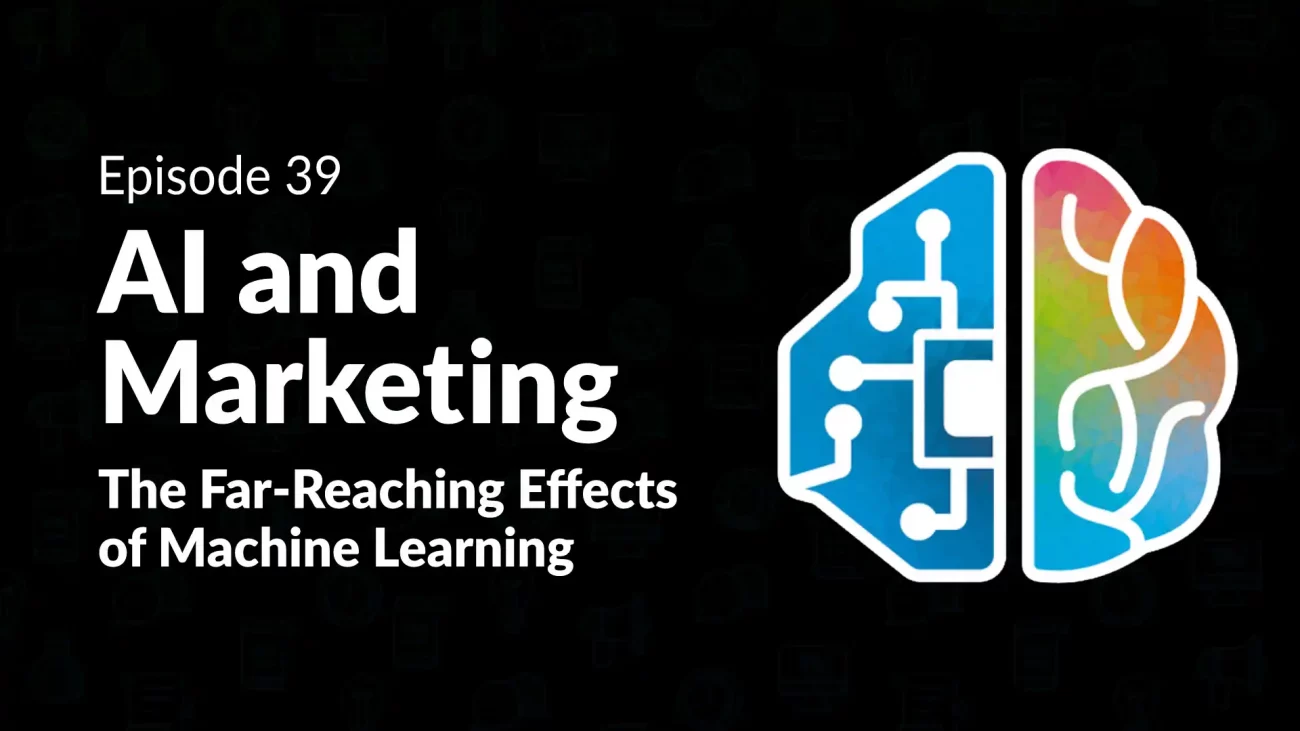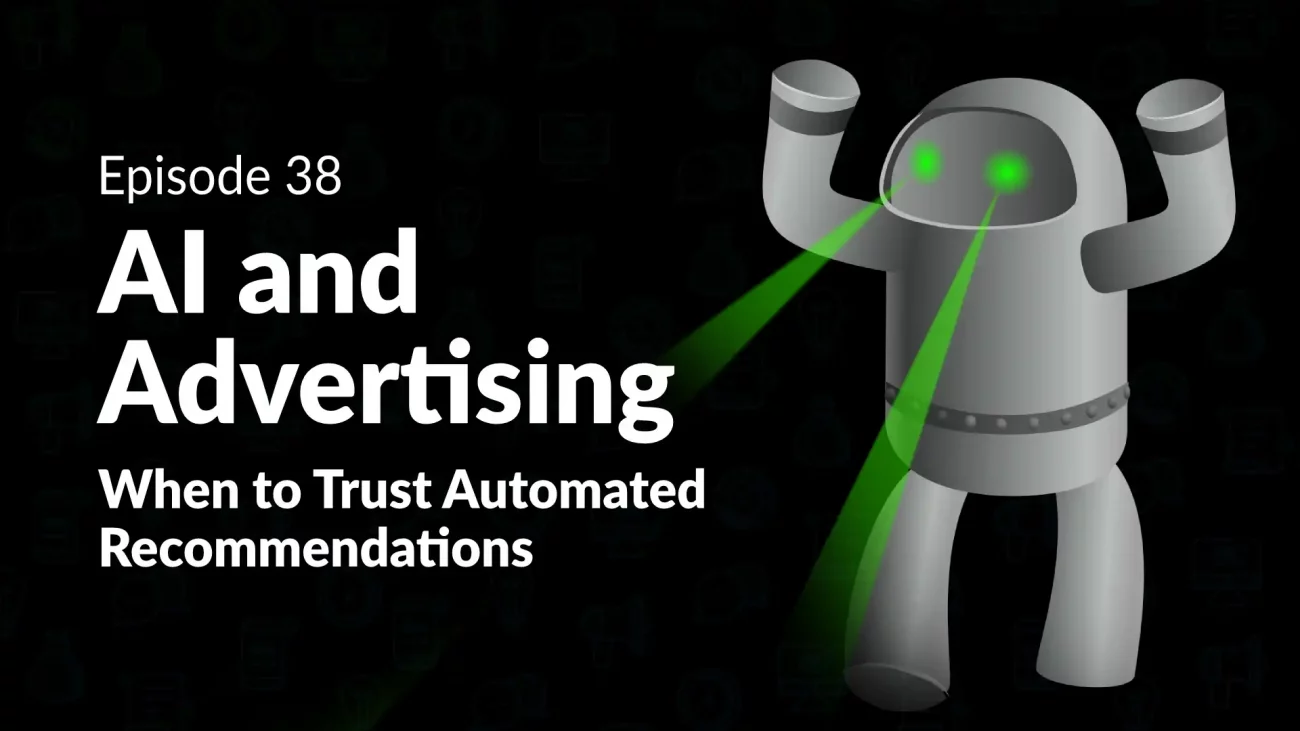Episode 10: Google MUM Algorithm Update: What You Need to Know
Hans and Devin discuss Google’s upcoming MUM algorithm update and explain what you need to know.
Transcription:
Devin:
You’re listening to Digital Marketing Mondays. Each week, we bring you new and exciting content from around the marketing industry and help give you, the marketer, insights into what’s happening. We’ll offer our advice and share some takeaways to help you develop better strategies for your marketing. Ideally, this will also help you improve your ROI as well. So with that, let’s tune into this week’s episode.
Hans:
Well, so Devin, this morning I’ve got a question for you.
Devin:
Okay. Shoot.
Hans:
Google had a conference a little bit earlier this year, and they talked about a new feature or capability called Google MUM, M-U-M I think is how it’s spelled.
Devin:
Yep. You got it.
Hans:
So can you tell us a little bit about first of all, what is Google Gump, mum? I’m sorry, MUM. What does it stand for? And then later after that, we’re going to get into sort of, how might that affect people. Now this is still a project under development. It’s not rolled out yet. And I don’t think they’ve disclosed when they’re going to roll it out, but it seems like it’s in the works and it’s always good for our listeners to know what’s coming down the pike. So that’s what this is about today. So what is Google MUM?
Devin:
Yeah. Yeah. And of course like all things Google, they love to make it seem very pie in the sky and not give a ton of details about it. So take it for what it is. But anyways, this Google MUM, MUM is “Multitask Unified Model.” And what this is looking at is it’s basically, I don’t want to say it’s not going to replace their existing algorithm, but what it’s going to do is be an enhancement to their algorithm in that it is trying to help. Oh yeah.
Hans:
Just a second. When you say algorithm, do you mean like, we’re talking about search and search results, listings and things like that, as opposed to the way they run advertising right now. Right? Is that…
Devin:
That’s correct. Yep.
Hans:
Okay.
Devin:
Thank you. And yes, it’s for specifically an enhancement to their Google search algorithm.
Hans:
Okay. Great. All right. Sorry to interrupt. Keep going.
Devin:
No, no worries. So what it is, it’s an extension of the Google search algorithm and what is it? The goal of it is to help simplify and provide better contextual answers for long-form questions. As part of this announcement, what Google, the example that they use is that if you are typically trying to look for something that’s complex in nature, you may end up having to do eight to 10 different search queries in order to kind of get the results that you want. And it’s a bit fragmented and you’ve got to do it in multiple parts. So the example that they kind of use as part of this rollout is somebody hypothetically going to hike Mount Fuji in Japan. And so in this hypothetical example, this person had hiked Mount Adams previously. And so they are trying to understand, well, how do I prepare for hiking Mount Fuji?
What do I need for hiking Mount Fuji, et cetera. Under the current search environment, that person would have to look up several different search queries to start kind of finding the answers. They’d have to know okay, well, what’s the elevation of Mount Adams? What’s the elevation of Mount Fuji? What’s the hiking terrain like Mount Adams versus Mount Fuji. What’s the weather, right? So they’re doing all these things. In this future of Google MUM being kind of added into the search algorithm, its goal is to help solve more technical, complex tasks. So as an example, that person may only have to ask, “I previously hiked Mount Adams, what do I need to do to prepare for Mount Fuji?” Long form question, very complex. There’s a lot of potential different answers in there, but that’s what Google MUM is hoping to achieve.
Hans:
A not a lot of keywords really. It’s about a concept and a question and the context of that question.
Devin:
Right. Absolutely. And one of the things, they haven’t been super explicit about this, but one of the technologies that’ll be helping run in the background to provide some of this information, it’s looking at sequential search keywords and behavioral activities online to try and help make sure that they’re surfacing the right answers. So as we all know, Google does a pretty good job of tracking people across the web and understanding what they’re doing. It’s then going to be leaning in on some of that information to help them better surface answers in the future. I think this is also [crosstalk 00:04:44].
Hans:
Using search history really isn’t anything, it’s not that new, it’s just the way they’re using that search history to come up with a result, which I don’t know, I’m trying to imagine what the result would be like. It wouldn’t be a listing pointing to a webpage. It would be more like an answer box type of a result. Right?
Devin:
Yeah. And that’s absolutely right. So it’s definitely going to be a lot more of long-form answers. Another example that I’ve seen floating around the web is what’s the difference between a lake, a river, and an ocean, right? Again, because you kind of need to answer it in three different parts and then possibly describe it all together. So that could end up being a couple of paragraphs in total. Right. And bringing another content or element to help support what that answer might look like. So I think all the same, we don’t have a ton of detail about it. They certainly have been very much mum’s the word in terms of when it’s going out. So yeah, we don’t know when this is going to be rolling out, ultimately. At least as of this recording, there’s no clear indication of when that is. So we’re just going to have to kind of wait and see, but I do think it will be interesting and there’s a couple other things I have my eyes on in there that make it particularly interesting.
Hans:
So going back to sort of the answer box thing, it sounds like with the answer box, Google kind of scrapes content from somebody’s website. And so, people used to do SEO because they wanted Google to send traffic to their website. But when Google scrapes your content and puts it on its search results page, there’s no more need for people to necessarily, unless they want to dig deeper, there’s no need for them to come to your website. So this is just sort of a continuation of the trend where Google is bringing you less and less traffic from organic search, I guess, and utilizing your content to provide answers to people that people want, but keeping them on your website unless, or until they click an ad. Would you agree with that assessment?
Devin:
Yeah. Yeah. And I think the heart of that lies in this idea that you may actually have content that’s surfacing for a search query that seems completely not unrelated, but certainly does not feature the right keywords, which I think will be one of probably the most compelling pieces of this whole addition to the search algorithm update or to the search algorithm. Because what it’s effectively doing is it’s going to try and surface the best content that Google feels will help be similar or adjacent or as to help support that long-term complex answer, but it’s not necessarily going to inherently be using keywords. The example that Google gave as part of that long-form question that was asked, “I previously hiked Mount Adams, what do I need to do to prepare for Mount Fuji?”
One of the examples they actually gave as part of that announcement was, well, it’s the rainy season in the fall in Mount Fuji, therefore you might need different gear or a rain jacket to make sure that you’re ready for it, which is really interesting to me because it means that, you know, rain jacket was not anywhere near that search query. Right. But it could still potentially surface results for it. I also have to imagine that that probably ties into advertising as well, and particularly,
Hans:
Well, there you go.
Devin:
You can search shopping ads, right? Because I think this is where Google Ads will continue to get pushed towards the AI realm because Google’s automation and algorithms could potentially push ads towards long complex search queries like that, that are not directly keyword based, which would be really interesting. And obviously it kind of shoots traditional Google Ads keyword methods in the foot, effectively, because it means that you may be surfacing ads for queries that on the surface don’t even look like they would necessarily be relevant, but obviously to the searcher they are.
So I think there’s going to be a lot more here to talk about in future episodes because we’ll start getting more details as they continue to kind of refine it and put some timelines behind it. But I think for now at a hypothetical level, this is going to be really interesting from that perspective. And I do want to go back to something that you mentioned or were kind of asking about before.
One of the other updates as part of this Google MUM rollout is that they are also going to be then potentially surfacing content that’s prominently featured in other languages. So as in, if there was a relevant article about Mount Fuji from a really popular Japanese guide, as an example, but it’s only written in Japanese and on a Japanese website as of today, you would not see that content if you were based in the US or Canada, or if your browser is set to English or you’re not in Japan. But as part of this rollout, what I believe Google is looking to do is actually use their auto translate function and then surface some of that content as part of the result, because that is actually the best content for that particular search query, that complex search query.
So, I mean, what that effectively means now is that there could be no borders in terms of where your content actually shows up, whether it’s translated content or not. But I think that also goes to show that it’s going to be exceedingly hard for SEOs to kind of keep tabs on where this content is appearing. And yeah, I think the future is going to look very different for SEOs as part of this rollout, for sure.
Hans:
So, let me see if I can summarize here. It sounds like keywords are going to become less of an issue. I mean, we’ve all been trained. So when search engines came along, excuse me, we all got trained to sort of formulate our search queries in the form of keywords that we would type in. Now we’re going to be doing more like the kind of question you would ask an expert in the field, which could be a question that runs on for a sentence or two, I would guess, right? And it processes that. So as somebody that wants to engage with people on the web and have Google help them, it sounds like for one thing, more and more Google is going to be pushing people to do more in the way of advertising to in order… You’re just not going to get the free traffic that you got before.
It’s already way down from what it was. And that trend will continue. That’s the first thing I’m hearing you’re saying. And the second thing is that content is going to be increasingly important, to have really good and informative content that you might get quoted. Because at least until now, and I probably don’t expect that to change, Google does provide attribution. Like if they scrape something out of your site to stick in an answer box, they do put a little link to your website at the bottom or the page that that came from because otherwise they’d be plagiarizing. And I think they probably, hopefully at least that they will continue doing that. So quick content is really important. And probably, if you’ve been running your business off of free traffic from Google searches, that may not work quite as well anymore going forward when Google MUM rolls out. Would you agree with those two assessments?
Devin:
Yeah. Yeah, I think so. Though I mean, as we know, things can change on a drop of a hat over on Google. So we don’t know. I mean, we’ll have to wait and see. I would imagine that they would. I think what I also imagine is part of that future is a lot more, I think they’re just going to really enhance that result, that search engine result page to be a lot more of a guide type of scenario where it’s really highly customized results rather than simply just the 10 blue links with the different headlines that all pretty much look identical to each other or very similar, right? And then it shows a matter of well, which one looks a little bit better.
I think you could end up seeing in the future with this changeover, wholesale pages that are just custom curated for trying to answer those relevant topics. And I think it’ll have a new visual look and feel. So I wouldn’t be surprised if as part of this, we start seeing some new like, knowledge panel types, we start seeing different search engine result pages, new ad formats that are coming out as part of this as well. So I think there’s a bright future here, but I also think it’s a little bit of a scary future as well. So we’ll see, we’ll see what happens.
Hans:
Yeah, wow. Interesting stuff. Well, we’re going to keep our finger on the pulse and we’ll let people know if we learn more, but right now that’s what we know. And I think that’s helpful. Thank you, Devin. Thanks for sharing.
Devin:
Yeah. Thank you. And thanks everybody for watching. See you next week. Thank you so much for tuning in. We really appreciate you taking the time out of your busy day to engage with our content. Whether you’re watching on YouTube or subscribed on our podcast apps, we appreciate you taking the time. Make sure to leave a comment down below and let us know any feedback that you have for us. We’re always watching the comments and engaging in any way that we can. So if you find this content useful, also make sure to subscribe or give it a big thumbs up. We appreciate it. Thanks so much.




